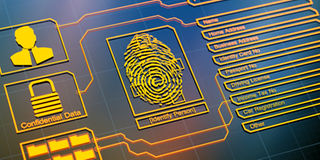Prime
How Tanzanians will benefit from digital identity system

What you need to know:
- Unique Number ID will enable all users to electronically access all the critical government services and the same from the private sector and will be superior to others currently in use in that it will contain detailed information
Arusha. A new digital identity is set for a roll out as Tanzania inches towards a digital economy.
'Unique Number ID' will enable all users to electronically access all the critical government services and the same from the private sector.
The new digital ID is expected to be much superior than others currently in use in that it will contain detailed information about the holder.
"It will be a unique lifetime identifier,” insisted Mr Mohamed Khamis Abdulla, the permanent secretary in the Ministry of Information, Communications and Information Technology.
He said although 'Unique Number' will be different from the machine-readable Nida IDs now in use, it will complement the latter.
The current national IDs, issued by the National Identification Authority (Nida), are confined to people aged above 18 years.
Unlike Nida IDs, 'Unique Number ID' holder would not need to possess a card but will only be identified through his or her number.
The PS revealed this here on Saturday ahead of a meeting of government executives which discussed critical issues before the new ID is rolled out.
He said the decision to introduce 'Unique Number' has been arrived at after realising the burden of having a multiplicity of IDs in use in different sectors.
He specifically cited those issued by Nida, Immigration Department (passports) and by Registration Insolvency and Trusteeship Agency (Rita).
Other IDs are issued by different institutions like the Tanzania Revenue Authority (TRA) but which, he said, can be synchronised to ease access to various services.
"We have come to a point where we need only one identifier. We have too many IDs by different bodies,” Mr Abdulla pointed out.
With the coming in of a new digital identity, he hinted on the likelihood of adjustments on the legislation that established Nida.
This would largely entail adjusting registration to persons below 18 years of age. Currently Nida only registers those aged 18 and above.
The Ps said although Nida IDs have different features that can serve as identifiers to access various services, some of them have not been activated.
"Nida IDs have certain chips which have not been activated by users for instance to access some services like a driving licence,” said Mr. Abdulla, who was once an IT director at Nida.
He added that 'Unique Number' ID or 'Jamii Namba' is intended to be a 'One Stop Service Centre' and a unifier "for all life cycles of a person".
The new digital identity is being introduced in collaboration with counterpart institutions in Zanzibar responsible for IDs registration.
Digital IDs have become important as Tanzania is embracing a digital economy whereby all transactions will have to be done electronically.
Innocent Mungy, the director of communications in the Information and Communications ministry said the new digital identity would be a game changer.
"It is also part of digital transformation that the country is going through,” he said, noting that the concept was a bit unique.
Priscus Kiwango, the director of IT in the President's Office (Public Service Management) said the new identifier would enable all and sundry to access government and private sector services.
The new digital identity would be eligible for use by the citizens, foreigners living legally in Tanzania, refugees and children under 18 years of age.
Senior executives from the Union and Isle governments were meeting at an Arusha hotel at the weekend to work out modalities on how the new ID system would be rolled out.



